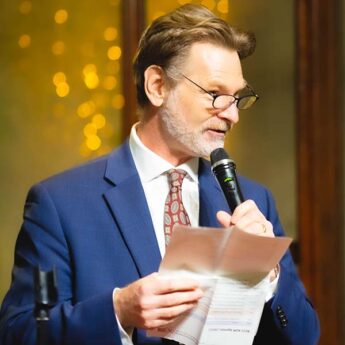In 2018 the UK’s Burdett Trust for Nursing launched Nursing Now, a three-year programme to raise the status and profile of nurses. In collaboration with the World Health Organization (WHO) and the International Council of Nurses, the programme has expanded to 126 countries, including Japan.
By raising the profile and status of nursing, the campaign has contributed significantly to global health, economic development and gender equity. Progress towards these goals requires sustained commitment, and the legacy of Nursing Now will continue via the Nursing Now Challenge, developing leadership opportunities for nurses throughout the world.
Giving thanks
Praising the success of Nursing Now, WHO Director-General Dr Tedros Adhanom Ghebreyesus has urged countries to invest in nurses, so they are supported, protected, motivated and equipped to deliver safe care. It is fitting that 2021 has been designated the WHO International Year of Health and Care Workers.
Against this background, I was honoured to join President Jenifer Rogers, of the American Chamber of Commerce in Japan, on 27 May to welcome guests and distinguished speakers to a healthcare meeting entitled, Appreciation of Healthcare Workers in Japan. In preparing for the online event, I noted the role of America’s first professionally trained nurse, Linda Richards, in setting up one of Japan’s first nursing schools at Kyoto’s Doshisha Hospital in the late 1880s. It was pleasing to learn, too, that Richards had trained in the UK under Florence Nightingale (1820-1910).
Although Nightingale was a prominent statistician, she is best remembered as the founder of modern nursing. In the UK, this aspect of her career is cemented in popular culture by her image, as the Lady with the Lamp, featured on £10 banknotes between 1975 and 1991. More recently, the temporary National Health Service (NHS) hospitals constructed to look after the UK’s Covid-19 patients have been named after her.
Public contribution
The NHS itself is a source of UK national pride, and many will recall it being celebrated during the opening ceremony of the 2012 London Olympic and Paralympic Games. In 2020 and 2021, we have seen people gather on their doorsteps during the Covid-19 lockdowns to applaud NHS workers as part of the Clap for Carers campaign.
With the dedication of those workers at the forefront of national consciousness, we saw the public seeking tangible ways to connect with this outpouring of appreciation. Some turned to fundraising, none more spectacularly than Captain Sir Thomas Moore (1920–2021)—the British Army officer more widely known as Captain Tom—who set out before his 100th birthday to raise £1,000 for NHS charities, and closed his campaign with almost £40 million.
The popularity of fundraising and gestures of support reflects a collective desire to show appreciation for the extraordinary sacrifice and service that healthcare workers provide. It is important, though, that we focus not only on what these dedicated individuals do, but also on who they are. As husbands and wives, mothers and fathers, sisters and brothers, friends and neighbours in our communities they, like the rest of us, have good days and bad days. Days when they are fuelled with energy, and days when they are running on empty.
So, whilst healthcare workers in Japan and around the world may appear superhuman, let us never forget the reality that, to continue delivering their miracles, they need and deserve not just our gratitude, but also our most sincere and genuine support. From both government and society at large. Not just now, during a pandemic, but always.

